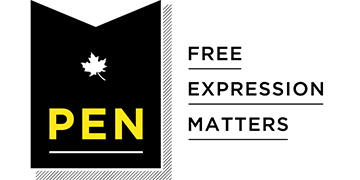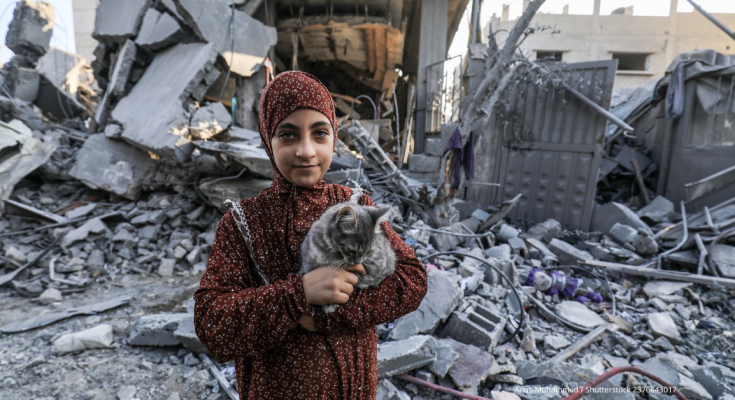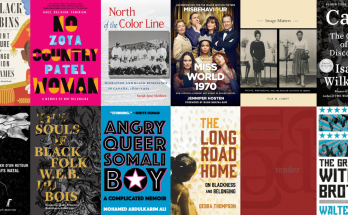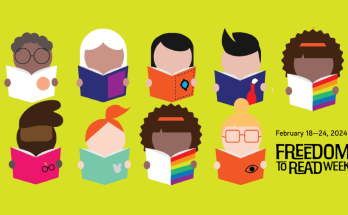By Marcello Di Cintio
For the past six months, since the most recent horrors in Gaza began, I’ve been using my Gazan friends’ Facebook activity as proof-of-life. I begin to worry when several days pass without a new post, or when my private messages inquiring about their safety go unanswered. My friends have all responded eventually, at least so far, with messages like “Inshallah, we will stay alive,” or “so terrible, with much horror and destruction,” or “still alive, don’t know until when, but we will try our best.” In one voice message I could hear the boom of bombs in the background, and in another I learned that the poet Saleem al-Naffar was dead.
I first met Saleem at his home in Gaza City in the fall of 2015, a little more than a year after Operation Protective Edge – what was then Israel’s deadliest assault on Gaza. According to Amnesty International, the IDF killed 2000 Gazans during that war, more than 500 of them children – an order of magnitude less than the ghastly massacre unfolding now. I spent two months in Gaza working on a book about life in Palestine as seen through the lens of Palestinian literary culture. I lived in a seaside apartment building that is now rubble, gave a writing workshop at a university that has since been destroyed on the invitation of a professor that Israel has since killed, and enjoyed the warmth of a people whose lives have been shattered.
I was especially excited to speak with Saleem who, I’d been told, was Gaza’s finest living poet. Like many Palestinians, Saleem had never been to the place he came from. His parents fled their home town of Yafa to the Gaza Strip during the Nakba in 1948. Saleem was born in 1963 in the al-Shati refugee camp in northern Gaza. His family was exiled to Jordan after the 1967 war when Saleem was only four years-old. I asked him what he remembered about his brief childhood in Gaza. “Small moments. Small memories,” he said. Saleem recalled that the lady who lived next door had a daughter his age, and kept chickens that Saleem would feed and chase. “And the sea,” Saleem said. “I remember being lost many times going to the sea. And my family always having to search for me.”
Saleem’s family would move from Jordan to a Palestinian refugee camp in Syria. There, his mother encouraged him to read and write. “She planted in me the love of the Arabic language,” he said. She ensured he had books to read from the camp library, and his early writings made her proud. Saleem would go on to study literature at Tishreen University where he penned youthful love poems edged with politics. “For Palestinian writers, you cannot separate the public and the personal,” he told me. “I was forced to leave my country. In exile, we felt suffering. We were far away from politics, but how can we separate politics from our poetry?”
Saleem returned to Gaza in 1994. The Oslo Accords had just been signed, Gaza was under the governance of the Palestinian Authority, and Saleem felt hopeful. “The only important thing was that I came back to my land. Without a doubt, I knew tomorrow would be better,” Saleem said. “But these things flew away.” The peace promised by Oslo turned out to be an illusion. Then came the Second Intifada, Israel’s blockade of Gaza, and war after war after war. “For twenty years I dreamed of visiting Yafa,” Saleem said. He never did. For a while, he considered moving to Canada. Saleem had a brother in Toronto he could live with. But his mother refused to let him go. She’d already lost one son to Canada and wasn’t willing to lose another.
The blockade, already eight years-old at that time, had infected the writing of all the authors I met in Gaza, Saleem among them. “There is a climate of sorrow in my poetry,” he told me. “As a Palestinian writer, how can I write about my beloved, or about nature, when I can’t get my daily pocket money? When I see my friends and relatives have been killed? When I can’t leave my city? How can I write about these simple things?”
Saleem brightened when I asked him about his children. He was proud to tell me that his eldest daughter had nearly completed university and had just gotten a new government job that day. His two younger daughters were in high school and obsessed with Korean pop culture. One of them, a budding author herself, wrote short stories. He told me how his son was a talented musician and theatre actor. I asked Saleem if his children read his poems. “I wish,” he said, and laughed.
On December 7th, Saleem was killed by an Israeli airstrike. So was his wife, his son and his daughters. So was his brother and sister-in-law and their children. All buried together under the rubble of the same home in Gaza City where we’d drank coffee and talked about poetry seven years earlier. When I learned of Saleem’s family’s murder, and how their deaths had been added to a gruesome and growing ledger, I thought of a passage from Gazan writer Atef Abu Seif’s memoir of the 2014 war on Gaza titled The Drone Eats With Me. In the book, Seif recounts a drone strike killing six members of a family he knew:
[T]hey were not just ‘SIX.’ They were six infinitely rich, infinitely unknowable stories that came to a stop when a dumb missile fell from a drone and tore their bodies apart. Six novels that Mahfouz, Dickens or Marquez could not have written satisfactorily. Novels that would have needed a miracle, a genius, to find the structure and poetry they deserved. Instead, they are the tales that have cascaded into the news as numbers: moments of lust; onslaughts of pain; days of happiness; dreams that were postponed; looks, glances, feelings, secrets…. Every number is a world in itself.
“Life”, written by Saleem al-Naffar, translated by Muhammad Jihad Ismael
Knives might eat what remains of my ribs,
machines might smash what remains of stones,
but life is coming,
for that is its way,
creating life even for us.
Marcello Di Cintio is a PEN Canada board member and author of Pay No Heed to the Rockets: Palestine in the Present Tense.




